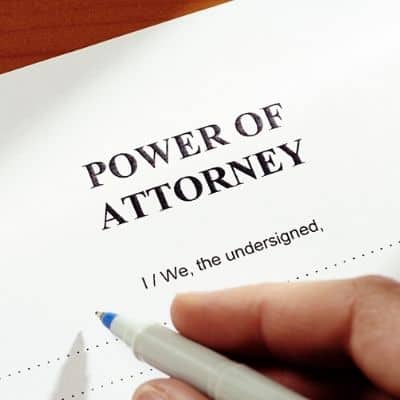
Welcome to Help & Advice
Our aim is to provide you with the most helpful content across a range of topics.
We hope the information we provide helps answer any questions you have. Below you will find helpful articles on the following topics:
Disclaimer: Please be aware that this site is no longer under active management. As a result, we cannot assure the accuracy or relevance of the content provided. Visitors should use their discretion and consider the potential for outdated or inaccurate information before relying on any material found here.
Probate

When Is Probate Required?
Probate is necessary for most aspects of estate administration. Probate will normally be required for distributing the property and assets among beneficiaries where it was owned solely by the person who died. This article will help expallain what happens in different circumstances.

How Long Does Probate Take?
In general, probate takes between six to twelve months. However, many factors affect how long the probate process is, meaning without knowing the circumstances of the individual case, asking how long probate will take can like asking how long is a piece of string. This article will walk you through the process.

What Is Probate?
Probate is the process of sorting out who gets what after someone dies. This includes sorting out all their financial and physical assets and distributing them amongst beneficiaries. This article will help you learn more about the process and what is required. Read more about this topic below.

Dealing With Contentious Probate
Contentious probate includes a variety of disputes, including a dispute over whether a will or codicil is valid, such as when you think there has been undue influence or the deceased person lacked capacity. However, there can be many reasons and this article sets out what you can do to challenge a probate process.

How To Find a Probate Specialist
After the death of a family member or loved one, you may find yourself responsible for managing the estate of the deceased person. This is why you may want to use a probate specialist to help you.
This article will help you find a specialist to help you.

Probate Costs and Fees
The cost of probate varies, depending on the estate and who handles the process. The cost of probate has two main components; fixed costs and variable costs. Fixed costs are essentially the application fee. This article sets out the different costs involved of doing it yourself or using a probate solicitor.
Using Trusts To Protect Your Assets

Property Protection Trusts
This is a trust you put in your will so that the surviving spouse can continue living in your property, but the deceased’s share of the property is kept separate.

Interest in Possession Trusts
This is a trust where the trustee must give all the trust income to a beneficiary as the income is generated, except for trust expenses.

Inheritance Tax Planning Trusts
By putting your money and property into a trust, you can maximize your tax-free allowance and reduce the amount of inheritance tax you pay.

Life Interest Trusts
A life interest trust is a trust written into a will. This means that the trustees hold the assets in the trust on behalf of the beneficiaries. Read more about them.

Asset Protection Trusts
The benefits can include reducing the care fees payable to the local authority and have tax advantages.

Home Protection Trusts
Protecting assets in a trust is a good option for wealth management and getting control over who inherits from your estate.

Inheritance Protection Trusts
The term ‘inheritance protection trust’ could describe many different types of beneficiary trusts. However, it usually refers to a trust for healthy, capable beneficiaries in a will.

Family Protection Trusts
A family protection trust is a method you can use to ring-fence your assets from taxation, care fees, and other risks to your estate.

Estate Planning & Trusts
Estate planning involves considering what to do with a person’s money and assets after they are deceased.
Lasting Power of Attorney

What is a Lasting Power of Attorney?
If you become unwell or lose capacity, you may not be able to make your own decisions about money or your own health and care. A power of attorney will let someone help you.

Health & Welfare Power Of Attorney
While you have the mental capacity, it is important to consider how personal questions will be answered when you are unable to make the decisions yourself.

Property & Financial Power of Attorney
It is a good idea to consider what will happen to your property and finances if you lose mental capacity or no longer feel able to make decisions for yourself.
Writing A Will

What Are Will Writing Services?
Making a will is an important way to ensure your wishes are carried out after your death, and your children and loved ones inherit what you want them to.

How Much Does A Will Cost?
The majority of people in the UK do not have a will. Making a will is one of the most important things you can do to protect your wishes after you pass away.

What Are Online Wills
An online will is quite simply whenever you make your will through a website. The type of services you get can vary, from a digital tool to draft your will, to an expert who reviews it.
Paying For Care

Paying For Care
If you feel that you need extra support around the house, or that you need to move into a residential care home, then you may be worried about how you are going to pay for care. Unfortunately, social care is not cheap. While the exact cost of your care will depend on your personal care needs, care fees can easily run in excess of £100,000.

Care Home Costs
Most people are responsible for paying for the full cost of their social care. You will be considered responsible for paying for care home fees if the valuation of your personal assets exceeds the national threshold. The savings threshold is different in England and Northern Ireland than it is in Wales or Scotland. Therefore, the are costs can also differ.

Home Care Costs
If you are thinking about receiving care and support at home, then you may be worried about how much your home care is going to cost. While it is true that the cost of home care is generally far less than the cost of residential care, home care can still amount to a considerable sum. Indeed, it is very common for the cost to run in excess of £13,000.
Estate Planning & Avoiding Inheritance Tax

Estate Planning
Estate planning involves considering what to do with a person’s money and assets after they are deceased.

Gifting Money To Avoid Tax
Making cash gifts to family and children can be an important element of estate planning. That is why you need to know what you can do.

Avoiding Inheritance Tax
Inheritance tax is a tax that is paid to the government on an estate after a person dies. However, you can legally reduce what you pay.




